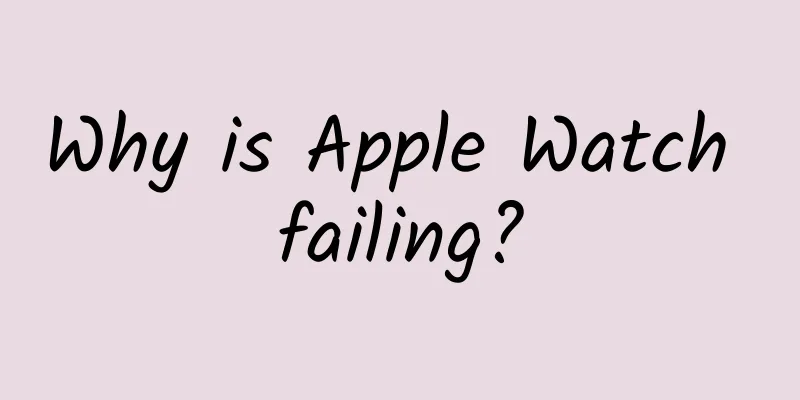Does a child learn bad things when he lies? In fact, lying is not something you can learn.

|
How old were your children when you first discovered them lying? Parents don’t like to see their children lying. So when parents first discover their children lying, they are often afraid: “Has my child learned bad things? How can he learn to lie at such a young age? Is this normal?” 01 Can education stop children from lying? This kind of thinking is very normal because everyone thinks that lying is something that people are born with, and if a child is pure in heart, he or she will behave properly and not lie; if a child learns to be bad and learns to do whatever it takes to achieve his or her goals, he or she will lie. So, to stop children from lying, what parents need to do is to tell their children from an early age that lying is wrong, and then praise them when they are honest, and criticize and punish them when they lie. Parents believe, or hope, that as long as they do these two things, their children will not lie. Tuchong Creative But the reality is far from satisfactory. Studies have found that 96% of children lie to their parents[1]. Why is this the case? Perhaps we should think differently about lying. 02 Are people born to lie? Developmental psychologists who study the laws of human growth first raised a question about lying: Are people born to lie? The results of the study found that children under the age of two or three are not able to lie. Lying may seem simple, but it actually requires very advanced thinking skills. This ability can only be acquired after the age of two or three, or even three or four [2]. In other words, children are basically incapable of lying before the age of three. The most important ability required for lying is to understand that a person's behavior is determined by his inner thoughts, not by the reality; and when a person's inner thoughts do not match the reality, that is, when the person's inner thoughts are wrong, the person will act according to this wrong thought. Therefore, if a child can understand that when the reality is "I ate the chocolate in the drawer", but if he can plant a wrong thought "the chocolate was eaten by the cat" in his mother's mind, then the mother will not act according to the reality, but according to her wrong thought - hitting the cat instead of the child. And younger children will think that their mothers will always decide their behavior according to the reality. Tuchong Creative The acquisition of these abilities requires not only the continuous development of the child's brain, but also the continuous enrichment of the child's experience in getting along with others. This means that when children are born, they do not have the ability to lie. Children do not lie not because they do not want to, but because they cannot. When children are three or four years old and have the corresponding abilities, they will naturally lie. At this time, the lying behavior is mostly to avoid punishment. Therefore, when you find a three or four-year-old child lying, don't panic, because this shows that the child is no longer a "little animal" but has made phased progress on the road to integrating into human society. Children's lying behavior cannot be simply equated with adults' lying to achieve their own immoral goals. 03 How to teach children not to lie? Okay, now that we know the answer to the question “Are people born to lie?” the next question is, how do we teach our children not to use lying to achieve immoral goals? To answer this question, let us take a look at the important research results of a moral psychologist. The core of morality is not rationality, but emotion; or we can say that the core of morality is not knowing right from wrong, but caring and concerning about others. Tuchong Creative Gary Gilmore, an American serial killer, said: "I can kill people... I can kill them without caring about their feelings. I can kill them without any hesitation. I know what I'm doing is wrong, but I'll do it anyway."[3] In fact, many serial killers are psychopaths who lack normal human emotions. Their horror is not because they lack the ability to think rationally about right and wrong, but because they lack the ability to feel emotions such as sympathy, shame, and guilt. These emotions are the core components of morality - moral emotions [4]. Moral emotions show that we can care about others, and they are the deep reason why we care about whether we are right or wrong. If we don't care about others, we won't care about right and wrong and morality. Therefore, the core of morality is not knowing right from wrong. If knowing right from wrong could stop us from hurting others, there wouldn't be so many people in prison - how many criminals don't know their behavior is wrong before committing a crime? Emotion is the core of morality. Tuchong Creative So, if we want children to truly realize that lying is a bad behavior, we cannot just tell them that lying is wrong. What is more important is to make them realize the harm that lying can cause to others. Specifically, when children lie, the following words often have no effect on them: "Telling the truth is a good thing, kid" Or "If you steal the chocolate, I won't be angry, but you have to tell me honestly whether you stole it or not." Because children may be afraid that their parents will not keep their promises, or they may think that their parents will be sad if they know that they are cheating. In this case, it is better for their parents not to know that they are cheating. Instead, parents can say something like: "For mom, the most painful thing is that you don't tell me the truth. If I find out that you lied to me, I will be very sad, just like you will be very sad when you find out that mom lied to you. If you can tell mom the truth, mom will be happy." Lying is really not just a question of right or wrong. References: [1] Bo Bronson and Ashley Merriman. The Great Shock of Parenting. Xia Jing. Shenyang: Wanjuan Publishing Company, 2011: 60. [2] Peter Smith, Helen Cowie, Mark Blaise. Understanding Children's Growth. Kou Yu et al. Beijing: Posts and Telecommunications Press, 2006: 287-290. [3] Paul Bloom. The Origin of Good and Evil. Qingtu. Hangzhou: Zhejiang People's Publishing House, 2015: 31. Author | Wang Lin holds a master's degree in education from the University of Tennessee, USA, with a major in children and family studies Review | Fan Chunlei Associate Researcher, Institute of Psychology, Chinese Academy of Sciences This article is produced by the "Science Rumor Refutation Platform" (ID: Science_Facts). Please indicate the source when reprinting. The pictures in this article are from the copyright gallery and are not authorized for reproduction. |
<<: Are you kidding?! Is this a child safety seat?
Recommend
Just for show? Why do mobile phone manufacturers develop their own processors?
Looking at the competition landscape of mobile ph...
Activity fission growth formula
Different companies have different growth indicat...
[Precise selling points + excellent creativity] The financial industry will win by promoting like this!
In recent years, Internet finance has developed r...
How to make reasonable use of 3 types of ground promotion methods?
A few days ago, when I passed the Gaoxinyuan subw...
How to attract new customers through activities?
Today, let’s mainly talk about how we can effecti...
The community is dead? These 6 tips will help you keep your social network active!
As the Internet continues to integrate into our l...
Not only from north to south, but also from east to west, in a circle... "Where do birds go?"
As the northern hemisphere enters winter, a spect...
The era of "seeing is not necessarily believing" has arrived. Beware of online fraud using AI face-changing
With the rapid development of artificial intellig...
Summary of various sorting algorithms
Sorting algorithms are the most basic and commonl...
Understanding 【Marketing Insights】
【Insight】, this word appears too frequently and c...
Gray hydrogen, blue hydrogen, green hydrogen, does hydrogen have colors?
China Science and Technology News Network, Januar...
How to set up the live streaming of massive Qianchuan delivery?
If you want to achieve good results when broadcas...
South Korean batteries are unreliable, GM announces recall and halts production, losses exceed 10 billion
According to foreign media reports, General Motor...
7 social media marketing methods and effectiveness evaluation methods!
Main contents of this article: What is Social Med...

![[Creative Cultivation Program] Go crazy with sunflower seeds snacks, but don’t forget to pay attention to this thing in the packaging bag](/upload/images/67f262645c1ff.webp)







